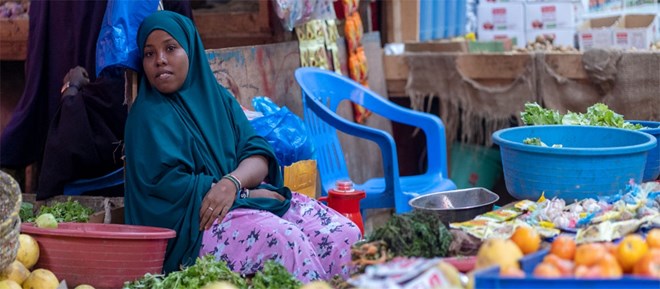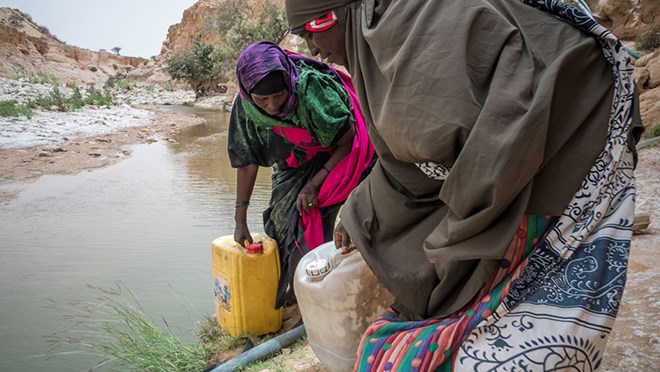
Wednesday December 2, 2020
By YASMIN SHEIKHDON
The COVID-19 (coronavirus) pandemic has completely changed our lives! What will our collective future look like?

Photo: World Bank
As with many global health crises, those at the margins remain at the greatest risk of contraction of disease and bear the greatest burden of the economic ramifications in the long term. This is especially true in Somalia, where there are more than 2,000 reported cases of COVID-19, and hundreds more believed to be unreported. The pandemic has brought the economy to a standstill and has threatened to dismantle the country’s weak health care infrastructure. “Business as usual” is no longer an option, and young Africans are poised to re-imagine solutions to new challenges such as COVID-19, and those that have plagued our countries for decades.
Africa has been dubbed a “testing ground” for new technologies. Innovation is seen as one of Africa’s most prized natural resources. The continent’s capacity for innovation—which continues to generate new products, ideas, services and revenues—continuously places African inventors at the forefront of emerging technology. At the heart of the African “Silicon Savannah” are youth who are leapfrogging the status quo and developing new solutions to old problems. Such innovation is crucial to fulfilling the continent’s goals for energy development, universal access, and local job and value chain creation – and key to combatting the COVID-19 pandemic.
Samawat Energy (not World Bank-funded), where I am COO, is only one of thousands of innovative companies on the continent. The newly-launched Samawat Afiya platform links digital health technology with solar energy, allowing health workers to go to rural, off-grid communities and provide access to health care for all.
Afiya provides healthcare workers with a smartphone and an on-the-go solar healthcare backpack equipped with Bluetooth-enabled medical devices that safely collect and store patient data. The adjunct app stores each patient’s medical information on the phone’s memory, and automatically uploads this critical information onto the Cloud upon obtaining a network. While the app gives medical center’s the ability to create coordinated medical systems, our solar-powered medical clinics and pharmacies link remote communities to healthcare professionals.
Not only will the Afiya platform help establish more resilient systems between health care facilities, workers and the people who need them, it will help target the most common and prevalent health concerns in Somalia such as pneumonia, diarrhoea, malnutrition, malaria, polio, COVID-19, HIV and AIDS – allowing these diseases to be addressed more efficiently.

Next door in Kenya, MyDawa is using technology to enable citizens to order their prescriptions online. The online pharmacy store allows users to order prescription medicines and over the counter products. The user needs to have a prescription which they can upload in order to access the service. MyAfya is another mobile-based healthcare application set up by Kenyan youth to help fight hypertension. It provides access to health practitioners, saves blood pressure history and shares such data with care givers. The Startup also teaches patients how to use the app and provides home-testing kits that are used alongside the app. Both MyDawa and MyAfya are beneficiaries of the World Bank Group supported Traction Camp launched in November 2016 to support emerging digital and mobile entrepreneurs across the region.
Our vision is for a more just and equitable future for all where health is no longer a privilege.